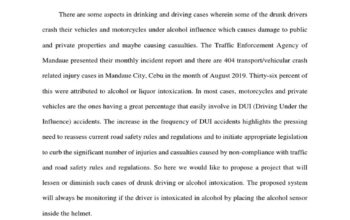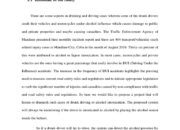In the annals of scientific discovery, there are moments that transcend mere empirical observation and reshape the very fabric of our understanding. Such moments compel us to reassess the foundational principles upon which the edifice of science stands. The occasion when science redefined everything captures the essence of such profound transformations. This exploration examines one remarkable instance where a singular event led to a revolutionary paradigm shift, elucidating the potentialities of scientific inquiry and the profound implications it harbors for humanity’s collective consciousness.
To comprehend the magnitude of a moment that redefines everything, it is imperative to consider the context of scientific progress. The evolution of scientific thought has been punctuated by numerous milestones—from the heliocentric model proposed by Copernicus to the formulation of the Theory of Relativity by Albert Einstein. Each of these breakthroughs catalyzed shifts in human thought, instigating a re-examination of our role in the universe. However, in this narrative, we focus on the rapid advancements that occurred during the 20th century, particularly in the realm of quantum mechanics.
The introduction of quantum mechanics to the scientific lexicon serves as a quintessential example of how one remarkable moment can redefine everything known prior. In 1900, Max Planck unveiled his quantum hypothesis, which posited that energy is emitted in discrete units, or quanta, rather than in a continuous flow. This revolutionary idea fundamentally challenged the classical Newtonian framework that had dominated the scientific discourse for centuries. Planck’s revelation initiated a cascade of understanding that would culminate in the radical theories of quantum mechanics, irrevocably altering our comprehension of physical reality.
This novel paradigm illuminated a peculiar and counterintuitive aspect of nature: the behavior of particles at the quantum level defied conventional logic. Particles exhibited dual properties, behaving both as particles and as waves—a concept articulated through the wave-particle duality principle. This duality beckoned questions that penetrated the very essence of existence: What is reality? What constitutes observation? It was the realization that the observer may influence the observed that sent ripples through the scientific community and beyond.
In the wake of these discoveries, the famous thought experiment known as Schrödinger’s Cat emerged, encapsulating the peculiarities of quantum superposition. The hypothetical scenario posits a cat that exists in a state of being both alive and dead until an observation is made. This paradox spurred philosophical discussions regarding free will, determinism, and the nature of consciousness. Indeed, it underscored the profound implications of quantum theory on the philosophical tenets that define human existence.
Moreover, the implications of quantum mechanics were not limited to abstract theorization. The burgeoning field of quantum technology has engendered innovations that have drastically altered modern life. Quantum computing, a synthesis of quantum theory and computational prowess, promises to revolutionize computing paradigms by enabling calculations that would efficiently exceed the capabilities of classical computers. This technological evolution not only augments data processing but also ushers in new frontiers in cryptography, material science, and artificial intelligence.
Another pivotal element of this scientific renaissance is the entanglement phenomenon. Albert Einstein famously derided this concept as “spooky action at a distance,” yet it reveals an interconnectedness that challenges our traditional notions of locality. When particles become entangled, the state of one instantaneously influences the state of another, regardless of the distance separating them. This phenomenon has profound implications, suggesting that our universe may be founded upon intrinsic interconnectivity, inviting us to ponder the consequences of this enlightenment on sociological and ethical dimensions.
Moreover, the controversies that arose from the implications of quantum mechanics rippled beyond just scientific circles. The debates between proponents of determinism and those advocating for a probabilistic universe were heated and polarizing. Figures like Niels Bohr and Einstein found themselves at opposing ends of this discourse, culminating in dialogues that underscored the philosophical ramifications inherent in redefining the nature of reality. Such discussions beckon a re-evaluation of ethical frameworks, influencing perspectives on technology, governance, and ecological stewardship.
As the dialogue surrounding these phenomena continues, the literary and artistic realms have begun to reflect upon the implications of scientific discoveries, merging the narratives of creativity and empirical inquiry. Writers, poets, and artists have drawn upon the metaphysical questions stimulated by quantum mechanics to explore themes of existence, consciousness, and the nature of reality itself. This intermingling of disciplines serves to invigorate both the scientific community and broader society, reinforcing the idea that the implications of one amazing moment extend far beyond the laboratory and into the realm of human experience.
Ultimately, the redefinition of everything through the lens of quantum mechanics heralds an era replete with wonder and inquiry. It challenges humanity to reconfigure its understanding of the cosmos and its place within it. The scientific community stands at a precipice, poised to explore uncharted territories that promise to transcend contemporary understanding. As researchers delve deeper into the enigmatic realm of the quantum, the anticipation of future revelations heightens the allure of scientific practice.
In conclusion, the moment when science redefined everything resonates as a beacon of transformational progress, inspiring curiosity and admiration for the universe’s complexity. The commitment to uncovering truths, regardless of their implications, remains an enduring testament to the human spirit’s quest for knowledge. As these explorations continue to unfold, they beckon us to embrace the unknown, to contemplate the mysteries that lie before us, and to recognize that each discovery serves as a reminder of the boundless possibilities inherent in the pursuit of scientific understanding.












